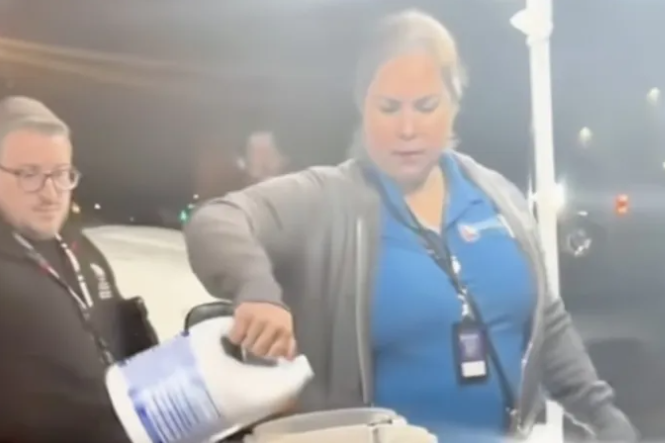Denver's public health authorities are defending a food inspector whose actions sparked national outrage after a viral video showed him pouring bleach into batches of prepared food at an unlicensed street vendor. The City of Denver said the measure was necessary to prevent the sale of food it deemed dangerously unsafe, following repeated violations that spanned multiple Colorado jurisdictions.
The Denver Department of Public Health and Environment (DDPHE) said the incident occurred during an enforcement action targeting Tacos Tacolorado, a food stand operating near Colorado Boulevard and Evans Avenue. Officials said the vendor had been warned repeatedly and was in violation of multiple cease-and-desist orders when inspectors found a series of serious food safety failures.
Emily Williams, a spokeswoman for the DDPHE, said the public reaction to the video failed to capture the severity of the risks involved. "This kind of enforcement is never our first step," she said, adding, "It does look extreme, but the situation itself is extreme." Her remarks reflected the department's conclusion that the vendor's ongoing violations posed a significant threat to public health.
Inspectors documented nine violations during the visit. Officials reported that staff were using a trash can filled with contaminated water as a makeshift hand-washing station. Cooked pork was found sitting at 54°F and 82°F, far below the required 135°F to prevent bacterial growth, and raw meat was stored in cardboard boxes instead of cold storage. The DDPHE said these conditions constituted a high-risk environment for foodborne illness.
The tension escalated when, according to Williams, employees refused to comply with instructions to destroy the unsafe food. She said workers "took approximately 100 pounds of pork and several pounds of chorizo into a locked box truck and wouldn't unlock the truck for investigators." The department said that refusal left officials no choice but to "denature" the food by applying bleach, ensuring it could not be sold to the public.
The enforcement actions gained further complexity after Isidro Garcia Barrientos, the vendor's owner, claimed he had been trying to obtain proper permits and asserted that DDPHE staff had not worn badges during the inspection. Video recorded at the scene contradicts that assertion, showing officials wearing shirts with agency logos and badges on lanyards. Garcia Barrientos also said the city had not contacted him about earlier issues, a claim the DDPHE rejected.
Williams said outreach was conducted in Spanish, the primary language spoken on site, and that inspectors obtained contact information from other health agencies to send inspection reports and cease-and-desist orders. She noted that reaching owners of unlicensed operations can be difficult because no official business license exists.
Regulatory concerns were not limited to Denver. El Paso County Public Health reported that Tacos Tacolorado had operated there without a license, and Jefferson County confirmed similar violations that resulted in a cease-and-desist order. The Adams County Health Department and the City of Aurora's Code Enforcement Division said they are investigating reports that the vendor may have been active in their jurisdictions as well.
The DDPHE said the bleach disposal aligned with standard procedures for preventing the sale of contaminated food and followed weeks of attempted engagement. The agency said the broader record of violations and cross-county activity demonstrated a pattern of non-compliance that left inspectors with no viable alternative.




